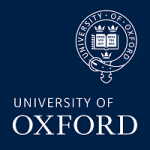项目介绍
About the course
The DPhil in Musculoskeletal Sciences is intended to provide clinical and non-clinical graduates with a wide variety of research skills, in-depth knowledge, understanding and expertise in specific musculoskeletal-related fields of research. Furthermore, as part of your training you will be exposed to a range of topics such as critical appraisal, epidemiology and medical statistics.
After a very short induction period in Michaelmas term, during which some basic training is provided, you will start a research project in your supervisor’s unit.
Most research groups have weekly meetings where members present and discuss their research results with other members of their team. You are likely to be asked to regularly present your work in progress seminars, which are attended by other research groups working in related areas. Whilst working on your research project you will participate in a comprehensive, flexible skills training programme which includes a range of workshops and seminars in transferable skills, generic research skills and specific research techniques. There are also numerous seminars and lectures by local and visiting scientists and you are provided with many opportunities to meet leading scientists.
Your training will be tailored to your particular needs, drawing from the vast range of training available at Oxford and covering both specialist scientific methods and techniques and transferable skills. Please note that there is no formal taught component of the DPhil in Musculoskeletal Sciences. However, you will develop your research skills through a range of research training in your first year, including compulsory attendance to core subjects with lectures on a variety of topics such as an introduction to “pathophysiology of musculoskeletal disorders, epidemiology, basic immunology, clinical trials and rehabilitation”.
During your first year, you will be expected to attend a number of topic related modules. Attendance on a two-day Data Analysis: Statistics Designing Clinical Research and Biostatistics course is compulsory to assist you with appropriate research design. You are also encouraged to work with your supervisor(s) on your research-specific literature review and to develop a study design for your thesis within the first term (two terms for part-time students) of your research training.
You will be required to attend and present at postgraduate seminars, not only to develop your presentation skills but also to benefit from the feedback, support and interaction from your University peers and senior academics.
As a member of Medical Sciences Graduate School, you will be entitled to attend various workshops run by the Medical Sciences Skills Training programme. Further academic and pastoral support will be provided for by the Departmental Graduate Studies Team which consist of the Director of Graduate Studies as well as the departmental Graduate Studies Officer and Assistant. Further support is available from your college advisor.
Supervision
The allocation of graduate supervision for this course is the responsibility of Medical Sciences and the Nuffield Department of Orthopaedics, Rheumatology and Musculoskeletal Sciences (NDORMS) and it is not always possible to accommodate the preferences of incoming graduate students to work with a particular member of staff. Under exceptional circumstances a supervisor may be found outside Medical Sciences and NDORMS.
All students must have at least two supervisors (usually a Primary Supervisor and a co-supervisor). At the beginning of your programme, you will meet with your supervisors regularly to finalise your project and agree on an initial programme of research. Within the first three months, you will complete an analysis of your training needs for the duration of your research (TNA) with your supervisor and submit it as part of your compulsory termly reporting.
Regularity of student/supervisor meetings will be agreed between the student and supervisors directly. Every student should meet their supervisors at least once per term; though it is expected that meetings will occur more regularly. A Thesis Committee is a recommended second strand of supervisory support in the Botnar Research Centre.
Within the first six to twelve months (twelve to twenty four months for part-time students) you are expected to complete a literature review on a topic relating to your area of research.
In the case of students who require specific help to adjust to an academic programme or to a new range of skills, the supervisor will work with them to ensure that they have additional support.
Assessment
Your attainment will be monitored regularly via:
- Completion of termly reports by you and your supervisor(s) through Graduate Supervision Reporting (GSR)
- Transfer of Status, to be completed before the end of the fourth term (eighth term for part-time students). The process includes preparation and submission of a 5000-word transfer report and assessment in a viva.
- Confirmation of Status, to be completed before the end of the eighth term (sixteenth term for part-time students). This process includes assessment in a viva including presentation of findings and an outline of the thesis.
- Submission and defence of the final thesis by viva, no later than twelfth term (twenty fourth term for part-time students – depending on funding duration).
Stages 2, 3 and 4 will be assessed by two independent senior academics to ensure you are on track with your research and that you are receiving adequate guidance.
Graduate destinations
According to the department’s records, DPhil in Musculoskeletal Sciences alumni are employed, across a wide range of clinical professions (eg rheumatology, orthopaedics or physiotherapy) and non-clinical related professions (eg in postdoctoral academic and industrial research, teaching, pharmaceuticals, marketing and scientific writing). A number of alumni have set up their own businesses or changed paths completely into banking or medical writing, a group which constitutes around 1% of the total number.
The Director of Graduate Studies and Graduate Studies Assistant follow the department’s alumni to establish the long-term career paths of past students.
Changes to this course and your supervision
The University will seek to deliver this course in accordance with the description set out in this course page. However, there may be situations in which it is desirable or necessary for the University to make changes in course provision, either before or after registration. The safety of students, staff and visitors is paramount and major changes to delivery or services may have to be made in circumstances of a pandemic (including Covid-19), epidemic or local health emergency. In addition, in certain circumstances, for example due to visa difficulties or because the health needs of students cannot be met, it may be necessary to make adjustments to course requirements for international study.
Where possible your academic supervisor will not change for the duration of your course. However, it may be necessary to assign a new academic supervisor during the course of study or before registration for reasons which might include illness, sabbatical leave, parental leave or change in employment.
For further information please see our page on changes to courses and the provisions of the student contract regarding changes to courses.
录取要求
-
a first-class or strong upper second-class undergraduate degree with honours as a minimum, in biological sciences and/or related topics.
联系方式
电话: +44 1865 270000相关项目推荐
KD博士实时收录全球顶尖院校的博士项目,总有一个项目等着你!






